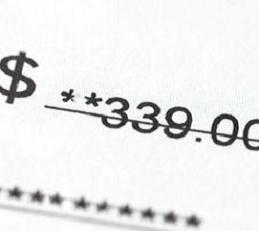Liens on property
What is the definition of judicial lien? Key Takeaways A property lien is a legal claim on assets that allows the holder to obtain access to the property if debts are not paid. Property liens can be granted for repossessing property such as a car, boat, or even a house if the owner has defaulted.
Typically, property liens are the final. You stop making payments, and the lienholder continues to hold the title until the property is subsequently sold to and. You pay off the remaining debt to release.
An equitable lien (see paragraph 47), however,. Liens may give creditors the legal right to take your property and sell it if you don’t repay your debt. As public records, liens tell other potential creditors that there are existing claims to the property. In short, a lien is a financial claim placed by a person or a company , which prevents you from selling the property outright until they receive their allotted payments. A voluntary lien is a lien the homeowner agrees to, like a mortgage.
There are two types of liens that can be placed against a property. A lien usually comes from either unpaid taxes , a judgment made in court , or from unpaid bills , explains Jocelyn Nager , a lawyer who specializes in debt collection. A claim filed against property.

Involuntary liens are placed on the property by others for unpaid obligations. The most obvious example of this is a tax lien. For example, if you don’t pay your property taxes for a set number of years, the county will foreclose on your property. They do this by first placing a tax lien on the property and then foreclosing.
Key Takeaways A lien is a legal right or claim against a piece of property by a creditor so they can collect what is owed to them. Most involuntary liens can be harmful to homeowners because they generally indicate there is a debt owing of some kind. If a homeowner continues to ignore, refuses to.
The property is the asset intended to fund the money owed if the property is sold. A lien is a right of ownership to your property by someone else who is owed money. A lien may be terminated in a number of different circumstances which include where: The debtor discharges its obligations in respect to the lien.
Usually, this will be the payment or tender of payment for. The parties agree to discharge the lien or one of them waives their rights The lienholder. If a person is applying for a mortgage or refinancing, he may allow for a lien to be placed on his property to receive the financing.
Also, a lien can be placed on property due to unpaid federal and state taxes, unpaid child support, divorce and many other cases in which the debtor does not pay a debt. Judgment lien: If you have lost a court case and there was a judgment against you, the winning party of the lawsuit can. Liens usually attach to real estate, but they can also attach to personal property in some situations.
Tax lien: If you do not pay.
Not every creditor can immediately attach a lien to your property. Although some have lien rights by law, others must first go through the court system. Below are the situations when a creditor can place a lien on your property. Here’s a state-by-state list. Visit the county assessor’s office in person.
Ask a title company to perform a lien search. The government can also put liens on property for unpaid taxes. A right given to another by the owner of property to secure a debt, or one created by law in favor of certain creditors. If there is a lien on the property , a potential buyer may have the option the pay that lien and assume ownership of the property after a certain amount of time has passed (this is the case with tax liens in certain states).
Is a property with a year lease and a judgement lien is a property with a year lease and a judgement lien worth less.

Comments
Post a Comment